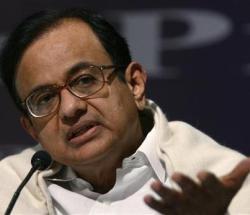 | « Back to article | Print this article |
 In an interview with the Press Trust of India on Sunday, Finance Minister P Chidambaram explained that there was no "antagonism" between his ministry and the Reserve Bank of India (RBI).
In an interview with the Press Trust of India on Sunday, Finance Minister P Chidambaram explained that there was no "antagonism" between his ministry and the Reserve Bank of India (RBI). Naturally, those concerned about the industrial collapse nothing short of a complete freeze will point out that this is no time for a single-minded focus on inflation. However, the whole point of central bank independence, a logic that has shown itself sound theoretically and through a dozen practical examples, is that it must decide monetary policy autonomously of the government and with inflation in mind not just also during periods of crisis, but especially during periods of crisis.
Of late, the relationship between the government in New Delhi and the RBI has degenerated into a public spat about priorities, which has destabilised the development of this institutional arrangement.
Certainly, divergent views can and should be expressed. But they should not be seen as being pushy. In addition, the disconnect seemed to be spreading worryingly into other fields. Consider the government's reappointment of Deputy Governor Subir Gokarn for an additional two-year term generally automatic but, according to a report in this newspaper last week, now subject to a search committee and an interview.
Mr Gokarn's three-year tenure is due to end this week and that a decision on the matter is yet to be finalised is a reflection of poor advance planning.
Also, at a time when Chief Economic Advisor Raghuram Rajan has been away from New Delhi to fulfil his prior teaching commitments in Chicago and the RBI governor himself is due to move on in less than a year, many would imagine the reappointment of the deputy governor in charge of the monetary policy department would be automatic, given the macro crisis India faces. That it does not seem so is cause for concern.
Consider also the question of bank licences. Whatever the merits of handing out new bank licences as a policy, the ministry's very public pressure on the RBI to move forward with the licensing process even before the central government can acquire legislative sanction lends itself to misinterpretation.
As the banking regulator, the RBI should be seen to be independent of government pressure on how it grows the sector. Both incidents, taken together with the increasingly testy disagreements over a variety of subjects over the past months, suggested this crucial relationship had become excessively fraught.
Mr Chidambaram, thus, needs to be congratulated for taking the first step to repair public perception about the state of the relationship. It could be argued that the RBI should not wait too long before enacting a growth-supporting interest rate cut. But that decision on rates is one that must be taken by the monetary authority alone, without excessive pressure from North Block or anywhere else.
Mr Chidambaram's statement must be followed up with a change in atmosphere in how the two economic authorities talk to each other. India's institutional structure, always fragile and subject to breakage at the exercise of arbitrary power, deserves no less.